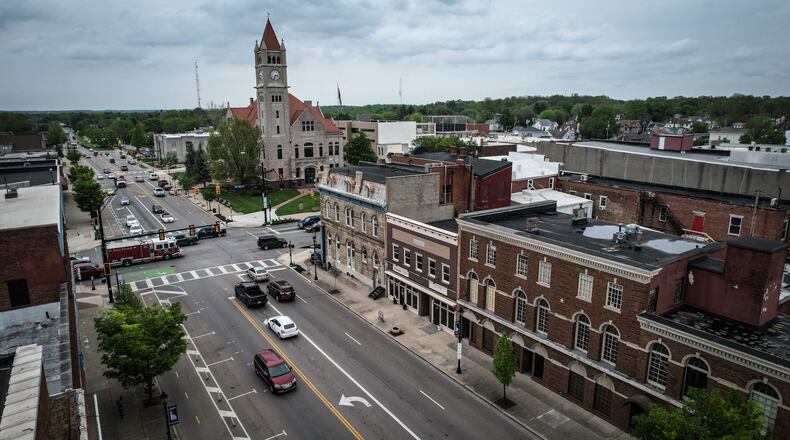Larger clinical facilities and temporary shelters would be limited to areas that are generally separated from neighborhood and business areas, with strict spacing standards between them, similar facilities and schools. Residential districts would only be permitted to have the smallest and “least impactful” mental health and foster home facilities, the legislation says.
A public hearing on the zoning changes will be held on Thursday.
The city will also encourage similar social services to be located close together, so individuals in need can get the full range of treatments they need in one place, public documents say.
Current rules lump different types of services together under two categories: Personal Care Facilities and Medical Offices, but facilities classified under these categories can vary widely. For example, an outpatient opioid addiction treatment center is different from a dental office, but the two are currently treated the same for zoning purposes.
Xenia has historically accepted a concentration of social services, but the opioid epidemic, growth in homelessness and mental health problems nationwide has accelerated an over-concentration of these services in the city, City Manager Brent Merriman said.
“We recognize that we have these needs and we’re accommodating, but we can’t be the service hub for the entire region,” he said.
While some organizations limit their clientele to residents of Greene County, similar to county-run social services, others do not, Merriman said.
“I think that was the frustration a lot of people had — a sense that Xenia would become a magnet,” he said.
The trend of serving clients from across the Dayton region “threatens to overwhelm Xenia’s capacity to handle the public safety challenges,” presented by those facilities, the ordinance says.
“As a county seat, we have to expect that we’re going to see some higher demand than other communities,” Merriman said. “But when you take that, and combine it with low cost of leasing space and doing business in the community, we’ve just seen a proliferation of these.”
Jeremy Wofford, Family Promise of Greene County’s board president, said despite the organization’s concerns, the zoning changes are “overdue” with the way Xenia is building itself up.
Credit: JIM NOELKER
Credit: JIM NOELKER
“They’re looking out for people’s safety and kudos to them,” Wofford said. “But if you look at putting us, for example, a family shelter that does not actively treat recovery, into an environment where there is recovery, there will have to be safety precautions in place.”
Family Promise, a shelter for homeless children and families, wouldn’t be immediately impacted under the legislation’s grandfather clause, but would kick in if the organization were to try to expand, or if the existing location was vacated and resurrected after a period of years.
“The biggest concern is, what’s the big picture?” Wofford said. “What’s the future for these kinds of services, and where is the city wanting to go with these services?”
Xenia City Council passed a temporary moratorium on establishing substance addiction treatment and related facilities in 2022, and extended it in 2023, with an expiration date of June 24.
About the Author


